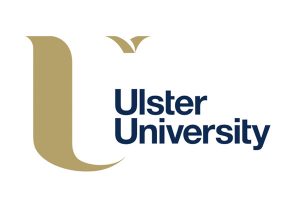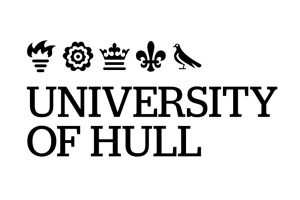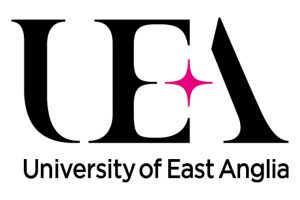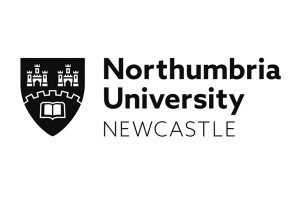How to succeed in your UK student visa interview ?
Your preparation for the interview must start as early as possible. You can practice in front of a mirror and record the video to see whether you exhibit nervousness or whether you use too many fillers while talking or get stuck in between while answering some questions. You should take the necessary steps to overcome such issues quickly. This implies that you would be benefitted if you start the interview process early and develop confidence before attending the interview. While attending the interview, ensure that you are dressed professionally. This will help in generating the right impression and will also showcase your commitment to go and study in the UK. Greet the interviewer and give a handshake. This will set the scene and ensure that you are comfortable in the process. It will be useful if you visualize the scenario and imagine that the interview will be a smooth process. Such visualizations are found to generate a positive frame of mind in people. Be in a positive frame of mind and be ready to face questions. Answer questions at a steady pace and to the point. If you would like to add additional points, you can do that, but make sure that you don’t beat around the bush. If you could not understand the question, ask the interviewer to repeat the question politely and confidently. If you don’t know the answer to a question, be courageous enough to mention that you don’t know the answer. However, as the questions in the next section suggest, most of the questions will be about you, your university, and the course selected in particular. These are minimum expectations and if you could not answer these questions, it is unlikely that the interviewer will trust your intentions. You can assume the outcome of such a perception. It is therefore beneficial if you understand the significance of the interview at a very early stage itself, which will prompt you to engage in interview preparations early. The following are some of the sample questions that are generally raised by the visa interviewer.
Read MoreThe landscape of international education is broad
The plethora of courses offered by universities in the international educational arena is the primary attraction for international students to move abroad for studies. Further, top-ranked universities are not concentrated in one region or country, even though the competitive position has been upheld successfully by multiple countries like the United States, the UK, and Australia for the last many decades. This competitive positioning even though has played a vital role in the expansion of the international education industry, many of the well-established Universities are more than 50 years old. The change mainly crept in the form of new courses and curricula dictated by the changes in the business environment. International students can get access to a wide range of courses that are unlikely to be available domestically.
Read MoreWhat is Statement Of Purpose (SOP) ?
A Statement of Purpose (SOP), also known as a research statement or a letter of intent, is written to the admission panel and talks about your career path, interests, professional contributions, goals and the driving force behind pursuing a particular program. This is usually submitted in the form of an essay; however, certain universities may also keep it question-based. It is the most integral part of your application that decides your admission in your preferred institution. The Statement of Purpose (SOP) is the decision maker of your application. It helps the admission committee assess your take on life, your career goals, beliefs, subject knowledge, and your vision. In short, a well-written SOP paints your overall personality for the universities. It is an opportunity to pitch your purpose to the committee and reasons why they should choose you over other applicants. A good SOP works great for weak academic profiles where in you can compensate by highlighting your future goals and ambitions. A well-written SOP also reflects how well you can express your thoughts using your writing skills.
Read MoreThe United Kingdom (UK) is noted for its high standards for education, interesting teaching styles, illustrious universities, and high levels of student happiness. In worldwide university league tables, including the Academic Ranking of World Universities, Times Higher Education Ranking, and QS World Rankings, UK universities routinely place highly. Furthermore, degrees obtained in the country are respected throughout the world and are in high demand by businesses. How is the UK Educational System Organized? England, Northern Ireland, Wales, and Scotland are the four countries with jurisdiction over the education system in the UK. There are various educational systems in the UK; educational requirements; and regional rules and regulations in each of these areas. The primary distinctions between general and secondary education in the UK are what lead to each region’s unique credit structures and certificates. Key Stages There are five levels of education available in the UK: primary, secondary, further education (FE), and higher education (HE). All kids between the ages of 5 (or 4 in Northern Ireland) and 16 must attend school. FE is not required and includes non-advanced courses that can be studied in HE institutions and colleges for further (including higher) education (HEIs). The fifth stage, known as the higher education (HE) system in the UK, is study above the GCE A levels and their equivalents, which is often completed by full-time students in universities, other HEIs, and colleges. Since September 2010, all three and four-year-olds in England have been eligible for 38 weeks of free nursery education. Early years education in the UK is provided in a range of settings, such as state-run nurseries, nursery classes, and reception classes in primary schools, as well as places outside the state sector, such as nonprofit pre-schools, for-profit nurseries, or child minders. Early years education and childcare have significantly increased in recent years. The Foundation Stage, which was initially implemented in September 2000 and covered children’s education from the age of three through the conclusion of the reception year, when children are aged five, was added to the National Curriculum for England by the Education Act of 2002. The Early Years Foundation Stage (EYFS) is a single regulatory and quality framework for the provision of learning, development, and care for children in all registered early years settings between birth and the academic year in which they turn five. The EYFS went into effect in September 2008 and is made up of three phases. At the conclusion of the academic year in the UK in which they turn five, each child’s growth and learning accomplishments are evaluated formally through the EYFS Profile (EYFSP).
Read More



































